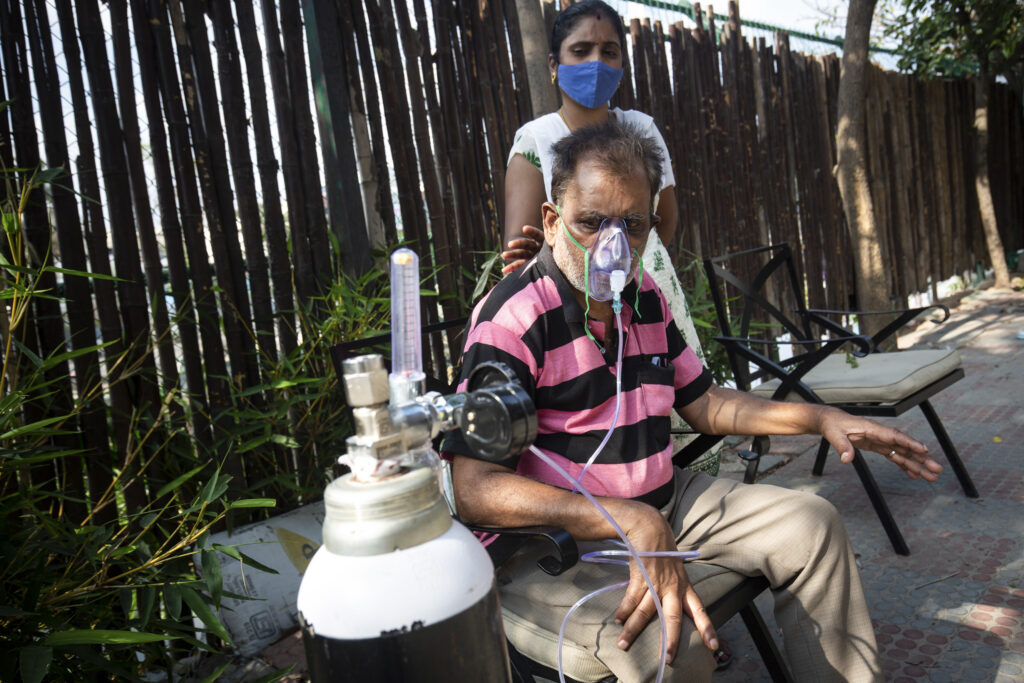
DELHI, India — As India continues to struggle with the burgeoning Covid-19 cases, a supply glut of oxygen, and a crumbling healthcare infrastructure, the U.S. is sending its “disease detectives” to help the South Asian nation choke the spread of the virus.
A strike team from the Centers for Disease Control and Prevention (CDC) is expected to reach India soon. The team will have officers from CDC’s Epidemic Intelligence Service. The detectives are known to have cut short the Ebola epidemic in Africa.
“The role of the CDC will be mostly related to the epidemiology of the disease, and that data will have some predictions regarding ways to control the current situation,” Sandip Mandal, consultant pulmonologist, Kasturi Medical Center, Kolkata, told Zenger News.
“But the onus of enforcing the ways to control will be on the Indian government. There should be a constant feedback system on improving the process.”
The Indian government is looking forward to the arrival of these specialists, who might constitute the most extensive U.S. assistance to India since the Covid-19 hit the world last year.

It is believed that the officials will be working closely with their Indian counterpart, the National Centre for Disease Control (NCDC).
The Epidemic Intelligence Service officers serve on the front lines of public health problems, protecting the U.S. and communities worldwide.
As per the CDC Foundation, they’re the “shoe-leather epidemiology”, referring to the emphasis on fieldwork that keeps these epidemiologists constantly on foot, going door-to-door to track and control disease outbreaks.
The CDC’s Epidemic Intelligence Service program is considered one of the pivots of the country’s disease control and public health management systems.
“Research collaborations across boundaries are necessary to tackle any worst situation,” Yashpal Singh Malik, dean of the College of Animal Biotechnology, Guru Angad Dev Veterinary and Animal Science University, Punjab, told Zenger News.
“Undoubtedly, we have all advanced knowledge and systems to analyze the data, but experts from other research agencies specialized in high priority disease is a welcome effort.”
Malik says the government and Indian citizens can play an equal role in sorting the problem by emphasizing awareness about the situation and taking necessary precautions.
“I think the emphasis on awareness, exhaustive vaccination of susceptible populations, whole-genome sequencing of isolates from different parts of the country, and developing health care infrastructure to a level supported with a larger portion of the health budget are few steps the government could have taken,” Malik said.
Though the government has been unsuccessful in providing adequate health care facilities to its people, will taking assistance from the U.S. further expose India’s crumbling health infrastructure?
Some doctors believe that will not be the case.
“Our frontline workers are working tirelessly for over a year, but our resources are falling short,” Shashwat Singh, MS surgery, and a urology resident at Lourdes Hospital in Kerala, told Zenger News.
“This is the time to find the best possible solution to curb the virus and get constructive suggestions and help. All deficiencies must be fulfilled at the earliest, and we must learn from our mistakes.”
Singh, a former surgeon at New Delhi’s Max hospital, believes CDC may even help procure the vaccine recipe used by the U.S. that might help India.
The White House on April 26 declared that apart from sending the CDC professionals, the U.S. has identified sources of specific raw material urgently required for the manufacture of the Covishield vaccine that will immediately be made available for India.
The U.S. will also provide aid to India by providing medical equipment such as oxygen concentrators, ventilator machines, supplies of rapid testing kits, personal protective equipment (PPE) kits, and a few drugs to fight against the aggressively mutating Covid-19 strain.

As per the latest media report by the Joseph R. Biden administration, the “disease detectives” team will work with Indian experts in laboratory services, surveillance, epidemiology, bioinformatics for sequencing and modeling of the disease, infection prevention, and control the rollout and risk communications.
Instead of working remotely, the foreign experts would be visiting and investigating hotspots and will go through the data to reach the roots of the strain and look for preventive measures.
However, the “detectives” might stay longer after reaching the goal of controlling the infections. The team would work towards cooperation between the countries to control the impact of the disease spread and provide a better way for bilateral cooperation on the issue.
For over 20 years, CDC has successfully collaborated with the government of India to address its public health priorities. It has worked with Indian health officials in the field of AIDS relief and tuberculosis.
It has also collaborated in the field of influenza preparedness and response plan.
“Many of these activities, originally developed and implemented during the 2009 influenza A/H1N1 pandemic, are directly relevant to the current Covid-19 pandemic,” according to the CDC website.
As per official records, India reported 366,494 cases on May 10, crossing the total number of cases at 22.5 million.
(Edited by Gaurab Dasgupta and Amrita Das)
The post U.S. To Send ‘Disease Detectives’ In India To Help Choke Deadly Virus appeared first on Zenger News.
